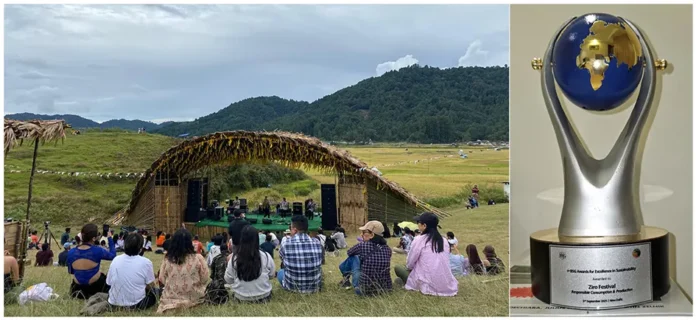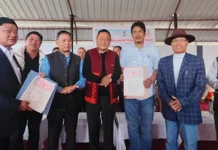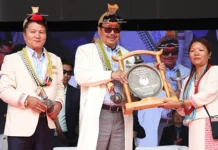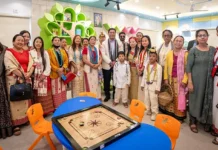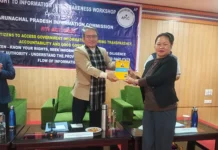NEW DELHI, 5 Sep: The Ziro Festival of Music (ZFM) won the 1st BSG awards for excellence in sustainability in the ‘Responsible consumption & production’ category in an award-giving ceremony held here on 3 September.
The BSG awards for excellence in sustainability celebrate individuals, organizations, and initiatives that are making a real difference in building a sustainable future.
Organized by Bharat Soka Gakkai (BSG), these awards recognize efforts that drive positive sustainable change in alignment with the United Nations’ Sustainable Development Goals (SDGs).
The nomination of the ZFM went through multiple rounds of rigorous review by the jury, evaluating impact, innovation, and scalability. Out of an inspiring pool of entries from across the country, ZFM’s work stood out for its exceptional contribution to building a sustainable future.
The ZFM is a living, scalable model for ‘Responsible consumption & production’ in the live events industry.
Every element – from design and infrastructure to vendor operations and audience participation – is rooted in the principles of the circular economy: reduce, reuse, recycle, repurpose, and repair.
The ZFM implements multiple social innovations through the medium of a music festival, combining cultural celebration with sustainability action. The festival, spanning over 4 days, witnesses over 12,000 attendees in the remote town.
The festival’s circular model directly creates income opportunities for over 300 local artisans, workers, and small businesses annually. Local communities are not just service providers – they co-design the festival. Apatani craftsmen collaborate with professional designers to build reusable bamboo structures, while community members manage camp sites, homestays, food and merchandise stalls, waste teams, and security.
This approach fosters local entrepreneurship, cultural exchange, and youth engagement.
Since 2018, Ziro has enforced a strict single-use plastic ban, diverting 1.5 million+ plastic bottles from landfills. Each edition manages and diverts over 10 tonnes of waste through composting and recycling-repurposing 5 tonnes of waste.
In 2024 alone, 1,531 kg of waste was composted while 1,395 kg was recycled.
All signage, décor and infrastructure are built from locally sourced bamboo and wood, which are also reused each year, and backstage areas remain completely plastic-free. These efforts make Ziro a national model for circularity in event production.
The biggest success of the ZFM is the visible shift in mindset. Attendees now arrive with refillable bottles, carry waste bags, and participate in clean-up drives.
Local youth are starting zero-waste campaigns, and some artists and vendors now replicate low-waste model at other events. The festival has seeded a growing consciousness – proof that culture can catalyze behaviour change and community-wide sustainability action.
The next step is to scale up the ‘Responsible consumption & production’ model through ‘Ziro On Tour’ – a travelling, modular format of the festival that brings sustainability ethos to cities across India.
The first edition in Hyderabad proved the model’s adaptability in urban spaces, and it is now planning to expand to other cities in the coming years.
The festival already welcomes 12,000+ attendees in person annually, making them the most immediate audience for behaviour change.
Through consistent storytelling across platforms, Ziro reaches over 30 million people online each year, including young Indians, musicians, students, and change-makers.
“We’re also expanding our sustainable design residency, which has been a core programme since 2018. It brings together architects, artists, and local craftsmen to co-create stage and site design using only reclaimed or local materials like bamboo and wood. In the coming years, we aim to develop this into a certification-based workshop and take it to design institutions across India,” said a release.

